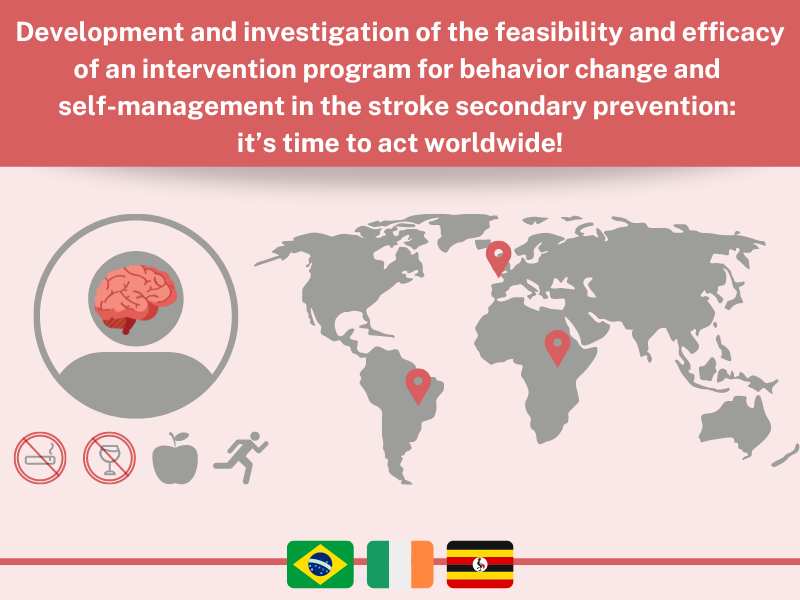
Stroke has a high burden worldwide, mainly in underdeveloped and developing countries. Recurrent stroke contributes to this: about a quarter of stroke events are recurrent, it is considered the main cause of hospital readmissions during the first year after the stroke episode, results in an even more severe disability and, consequently, worse health, well-being and quality of life when compared to individuals after one stroke episode, and contributes to an increase of about 40% in health costs. Hence, stroke secondary prevention is one of the top 10 priority research areas to reduce the burden of stroke: it’s time to act worldwide. However, recommendations of interventions for stroke secondary prevention are scarce. Therefore, the aim of this project is to co-develop and investigate the feasibility and efficacy of an intervention program for behavior change and self-management in stroke secondary prevention.
The first research question involving the need of an intervention program will be answered by co-development of an intervention program (three universities are involved: Prof. Christina Faria, Brazil, a developing country; Prof. Jane Nakibuuka, Uganda, an underdeveloped country, and Prof. Olive Lennon, Ireland, a developed country). The second research question that involves investigating the feasibility and efficacy of the intervention program will be answered performing these steps first in Ireland. Then, these steps will be conducted in Brazil. finally, training will be carried out with the African research group to implement it. Necessary adaptations to the socio-cultural and economic conditions of each country will be considered at all stages.
Prof. Christina Faria will lead the program team, in collaboration with Prof. Olive Lennon. Prof. Olive Lennon and her research team from Ireland are responsible for the conceptualization and development of the intervention, as well as for its implementation in Ireland. She will supervise all the overlapping activities that will be performed in Ireland, including the supervision of the PhD student Paula Peniche. Professors Christina, Olive and Jane discussed in detail the importance of investigating the feasibility and efficacy of the intervention program that will be applied in Ireland (a developed country), in countries such as Brazil and Uganda (underdeveloped and developing countries).
It is expected to obtain an intervention program that can be used in underdeveloped, developing and developed countries and that contributes to reducing the global burden of stroke: reduced risk of stroke recurrence, and improved health, well-being and quality of life of individuals after stroke. The WUN financial support is necessary to allow that the PhD student from Paula Peniche travel and learn how to implement the intervention, working in the implementation and in data collection and will be completely trained with all the skills and expertise necessary to apply the intervention with individuals after stroke.